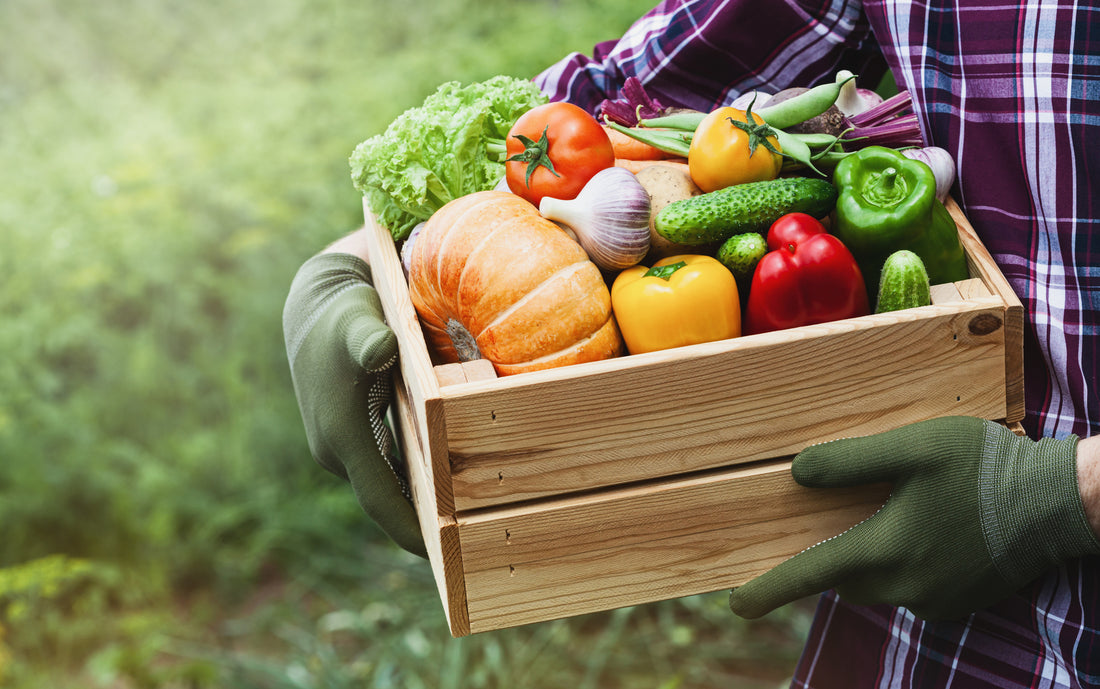
The Miracle of The Harvest
Dr. Linda HancockIn the fall, farmers and gardeners gather in the grain and produce that they have been looking forward to for months. Preparations are made for storage so that they can sell at the optimal time or enjoy foods that are preserved throughout the winter.
But the harvest begins long before fall and, in fact, is the result of observing specific principles that can also be applied to most aspects of life. When you understand these, you will usually reap a good harvest but if you neglect them, chances are that you will have to do without.
1. Prepare the soil - The ground will serve as a womb for the crop that you wish to birth. It is important that the soil therefore has the proper acidity and composition to encourage growth. In your personal life you also need to have an environment that will help you to grow and reach your potential. Are there people or places in your life that choke, discourage or steal from you so that you do not reach your potential? What can you do to enhance your environment?
2. Sow the seeds - There is a wonderful expression that claims "Wishing doesn't make it so". You will not reap unless you have first sown. Many people want to get a degree but never register for the first class. Some want to be wealthy but never set up a savings account and make the first deposit. Others state that they want to learn a skill or become a better person but do not begin the process. Then fall arrives and they have regrets.
3. Protect the crop - Insects, disease and predators can destroy the crop if you do not take precautions. That's why farmers spray in June and July even when it might be more fun to go to the beach instead. Fencing and weeding will also help to keep trouble out. In life, we need to protect our dreams and ideas so that they are not destroyed before they can mature. And beware that sometimes even you might actually be self-sabotaging by doing things that harm you in the present and for the future.
4. Invest your energy - The whole process of growing a crop requires a good work ethic. Machinery must be repaired when it is broken. Supplies must be purchased. Research takes effort. And besides planning about what needs to be done, you will need to add your labour so the seed will germinate, grow and then become ripe. Life also requires an investment of energy. If you show up at a job only for the paycheck, you will likely miss out on the promotions. If you marry and then expect romance without working on the relationship, you will likely end up disappointed.
5. Be sensitive about timing - When I was a child growing up in rural Saskatchewan our neighbour used to say "There's no point in trying to talk to a farmer when it's seeding or harvest". So wise! You see, farmers understand that time and opportunity must meet to allow success. If you wait too long to get the seed in the ground, it will not mature properly. If you wait too long to take the crop off weather conditions might destroy it. You can do all the right things and still get terrible results if your timing is off.
6. Know that you will reap in kind - When you plant wheat you will harvest wheat - not corn or watermelon or fruit. When you plant lies or nasty words or gossip you will likely not get returns that are positive. Plant what you want in return.
7. Your seed will produce more than you sowed - I once planted a handful of pumpkin seeds that resulted in a crop of ninety-nine pumpkins! You usually get more than you started with so be careful. If you plant a dollar in savings it will grow with interest but if you borrow a dollar it will also grow and soon you will owe far more because of interest.
If you are harvesting right now and feel disappointed about the results, do not curse the crop or look for something to blame. Instead, study the above principles, decide what needs to be changed and then look forward to a much better crop in the future.
And now I would like to invite you to claim your Free Instant Access to a complimentary list of 10 Steps to Making Your Life an Adventure when you visit http://lindahancock.com
From Dr. Linda Hancock, Registered Psychologist and Registered Social Worker
